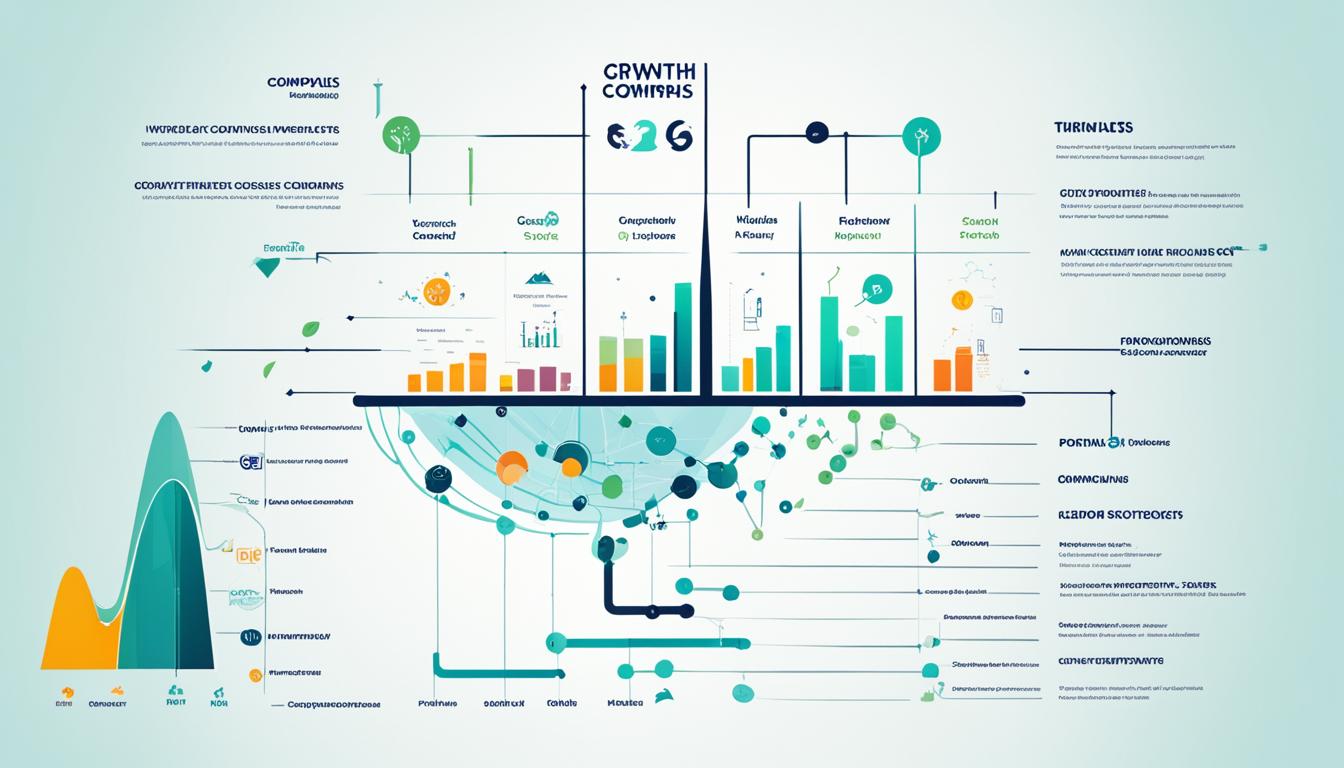As a venture capitalist, your daily routine can be quite diverse and dynamic. Contrary to popular belief, the lives of venture capitalists (VCs) are far from static or monotonous. In fact, their activities can range from intensely focused portfolio management to relentless deal sourcing and networking. So, what exactly do VCs do all day?
The truth is, how VCs spend their day varies greatly based on their personality, seniority, and the stage of their fund’s lifecycle. However, by and large, their time is devoted to five very visible activities and one that is often invisible. Most VCs will tell you they can truly devote quality time to 7-10 investments, at which point they are spending 80% or more of their time on portfolio management. Anything more than that can lead to too much “thrashing” or fragmented attention, while anything less means they have excess bandwidth – a key consideration for entrepreneurs when selecting an investor.
Key Takeaways
- Venture capitalists’ daily activities vary significantly based on their personality, seniority, and the stage of their fund’s lifecycle.
- Most VCs can devote quality time to 7-10 investments, at which point they spend 80%+ of their time managing their portfolio.
- Anything more than 7-10 investments can lead to fragmented attention, while anything less means excess bandwidth for the VC.
- Entrepreneurs should consider a VC’s bandwidth when selecting an investor for their startup.
- The lives of VCs are far from static, encompassing a diverse range of activities from portfolio management to deal sourcing and networking.
Portfolio Management
As venture capitalists, a significant portion of their day is dedicated to managing their portfolio companies. This encompasses a wide range of responsibilities, including venture capitalist portfolio management, vc board involvement, strategic guidance from venture capitalists, and monitoring portfolio company performance.
Board Involvement and Oversight
Venture capitalists often take an active role on the board of their portfolio companies, providing critical oversight and guidance. They leverage their industry expertise and network to help navigate challenges, identify growth opportunities, and ensure the company’s long-term success.
Strategic Guidance and Support
Beyond board involvement, venture capitalists offer invaluable strategic guidance to their portfolio companies. They work closely with founders and executives, providing strategic insights, market intelligence, and connections to help their investments thrive.
Monitoring Company Performance
Closely monitoring the performance of their portfolio companies is a crucial aspect of a venture capitalist’s daily activities. They analyze financial data, track key metrics, and stay apprised of operational developments to ensure their investments are on the right track.
By maintaining a hands-on approach to portfolio management, venture capitalists are able to maximize the potential of their investments and contribute to the growth and success of the companies they support.

Deal Sourcing and Pipeline Building
Effective venture capitalist deal sourcing and pipeline building are critical to the success of any VC firm. This involves a multifaceted approach that leverages various channels to identify and nurture promising investment opportunities. At the heart of this process are several key strategies that VCs employ to build a robust and diverse pipeline.
Networking and Investor Introductions
Establishing and maintaining a strong network within the startup ecosystem is a cornerstone of successful venture capitalist deal sourcing. VCs rely heavily on introductions from other investors, both those they have invested in and those they are actively considering. By tapping into their existing network, they can uncover hidden gems and identify companies that may be a perfect fit for their investment thesis.
Outbound Prospecting
In addition to leveraging their network, VCs also dedicate significant time and resources to outbound prospecting for venture capital. This involves actively seeking out and reaching out to startups that may not have crossed their radar through traditional channels. This could include attending industry events, conferences, and meetups, as well as directly contacting founders and entrepreneurs they have identified as potential investment targets.
Inbound Deal Flow Management
While networking for vc and outbound prospecting are crucial, VCs also benefit from a steady stream of inbound deal flow. This can come from various sources, such as referrals from portfolio companies, unsolicited submissions, and professional connections. Effective managing vc deal flow requires a robust system for evaluating, prioritizing, and following up on these leads to identify the most promising opportunities.

Due Diligence and Investment Analysis
When venture capitalists (VCs) come across a company that truly piques their interest, they often shift their focus and devote significant time and resources to the venture capital due diligence process. This meticulous examination is crucial as VCs strive to thoroughly understand the venture’s potential, risks, and fit within their investment portfolio.
A disciplined VC firm can spend hundreds of hours over several months thoroughly analyzing a large deal. However, the more typical investment analysis by venture capitalists involves 20-60 hours of diligence over 1-3 months. During this period, the VC’s attention can be fully consumed by the diligence process, as they diminish other activities, especially pipeline building, to concentrate on this critical evaluation.
When diligence is in full swing, it can occupy a VC’s time and focus entirely. But on average, the due diligence and investment analysis process accounts for approximately 20% of a VC’s overall time allocation. This careful and comprehensive assessment is a cornerstone of the venture capital investment decision, ensuring that VCs make informed choices that align with their investment thesis and portfolio strategy.

Communication and Thought Leadership
In the dynamic world of venture capital, communication and thought leadership play a crucial role in shaping an investor’s reputation and influence. From venture capitalist communication and thought leadership to vc content creation, vc speaking engagements, and vc media interviews, these activities allow VCs to connect with the broader entrepreneurial community, share insights, and position themselves as industry thought leaders.
Writing and Publishing Content
Many venture capitalists dedicate a significant portion of their time to creating and publishing original content, such as blog posts, articles, and whitepapers. This vc content creation allows them to share their expertise, industry analysis, and investment philosophies with a wider audience, further enhancing their venture capitalist communication and thought leadership.
Speaking at Events and Conferences
Participating in industry events, conferences, and panel discussions is another avenue for venture capitalists to showcase their knowledge and build their personal brand. These vc speaking engagements provide opportunities to connect with entrepreneurs, fellow investors, and other key stakeholders, solidifying their reputation as influential figures in the venture capital ecosystem.
Media Interviews and Podcasts
Venture capitalists also frequently engage with the media, participating in interviews, podcasts, and other forms of vc media interviews. These platforms allow them to share their insights, comment on industry trends, and establish themselves as thought leaders, further enhancing their venture capitalist communication and thought leadership.

What do VCs do all day?
As venture capitalists (VCs) spend their time navigating the dynamic world of startups and investments, a significant portion of their daily activities revolves around evaluating pitch decks, conducting market and industry research, and meticulously analyzing financial models. These critical tasks play a vital role in their decision-making process, ultimately shaping the investment portfolios they curate.
Evaluating Pitch Decks and Business Plans
A crucial aspect of a VC’s day is carefully reviewing and scrutinizing the pitch decks and business plans presented by entrepreneurs. This involves delving deep into the details of the company’s value proposition, market potential, competitive landscape, and financial projections. VCs must possess a keen eye for identifying promising opportunities and assessing the viability of each venture.
Market and Industry Research
Alongside evaluating pitch decks, VCs dedicate a significant portion of their time to conducting extensive market and industry research. They meticulously analyze industry trends, competitive dynamics, and regulatory landscapes to gain a comprehensive understanding of the ecosystem in which their portfolio companies operate. This insight enables VCs to make informed investment decisions and provide strategic guidance to the startups they back.
Financial Modeling and Analysis
Financial modeling and analysis are integral components of a VC’s day-to-day activities. VCs scrutinize the financial projections presented by entrepreneurs, leveraging their expertise to assess the feasibility and potential of each venture. This deep dive into the financials allows them to identify risks, uncover growth opportunities, and ensure that their investment decisions are backed by sound financial reasoning.

Fund Administration and Operations
As venture capital (VC) funds grow in size and complexity, the need for robust fund administration and operational support becomes increasingly important. Many VC managers choose to outsource back-office tasks to specialized fund administration service providers, freeing up valuable time to focus on their core responsibilities of investor relations, portfolio management, and supporting founders.
Legal and Compliance Matters
Navigating the intricate legal and compliance landscape is a critical aspect of managing a VC fund. Fund administrators can provide expert guidance on regulatory requirements, ensuring that the fund remains compliant with relevant laws and regulations. This frees up VC managers to dedicate more attention to strategic decision-making and value creation for their portfolio companies.
Financial Reporting and Accounting
Accurate and timely financial reporting is essential for VC funds to maintain transparency and build trust with their limited partners (LPs). Fund administration providers can handle the complex accounting and reporting responsibilities, including compiling quarterly and annual reports, managing capital calls, and facilitating efficient capital deployment plans. This level of financial expertise and operational support can be particularly beneficial for first-time VC fund managers seeking to establish a strong foundation for their firm.
| Key Benefits of Leveraging Fund Administration Services | Potential Drawbacks |
|---|---|
|
|
By leveraging venture capital fund administration, VC managers can enhance their operational competency, strengthen relationships with LPs, and ultimately focus more time and resources on driving value creation for their portfolio companies. The optimal time to engage a fund administrator is typically 6-12 months before the first fund close, ensuring a smooth onboarding process and a solid operational foundation for the fund’s lifecycle.

Limited Partner (LP) Management
In the world of venture capital, limited partners (LPs) play a crucial role in providing the necessary capital for investments. These passive investors do not have day-to-day control or involvement in the venture fund, but they profit from their investment during liquidity events like IPOs or acquisitions. LPs have limited liability in the partnership, meaning their responsibility for debts or legal liabilities is limited to their investment.
Fundraising and Investor Relations
What most entrepreneurs often never see is the venture capitalist’s own fundraising process. The more well-established a fund is, the quicker it can raise money, but even then, the process can take months, if not years. Besides annual LP days, there is regular communication with LPs, in person or in writing, that takes up to 50% of the time of the Managing Partner(s). Fundraising in venture capital is typically longer in time and takes more meetings with more people than startups. This is why most funds will do multiple closes, with two being pretty typical, since each close creates a forcing function to get commitments. As a data point, for first funds, the average is 1000 meetings over 2 years with a 1-5% return on investment (ROI) to fully raise a fund, and it can be 50% of the time of the partners throughout this period.
LP Meetings and Updates
In addition to the fundraising process, venture capitalists must also devote significant time to managing relationships with their limited partners. This includes regular communication, both in person and in writing, to provide updates on the fund’s performance, investments, and any other relevant information. LPs typically receive a percentage of the profits generated by the venture fund, with the remaining percentage going to the general partner as carried interest. As venture capital investments often require patience, LPs might need to wait several years before seeing a return on their investment.

To become an LP in venture capital funds, accredited investors need to meet financial criteria like a net worth exceeding $1 million or an annual income of at least $200,000 individually. Qualified purchasers must have at least $5 million in investments to qualify as LPs in venture capital funds. These strict requirements ensure that venture capital investments are accessible to a select group of sophisticated investors who can provide the necessary capital and patience for the fund’s success.
Networking and Relationship Building
As a venture capitalist, networking and building strong relationships are essential to your success. Your pipeline of potential investments often comes from your own network, including other investors you’ve already connected with, as well as inbound interest from founders and entrepreneurs seeking your expertise and funding.
Effective venture capitalist networking involves attending industry events, conferences, and meetups where you can connect with a diverse array of professionals. These interactions allow you to stay up-to-date on the latest trends, identify promising opportunities, and cultivate meaningful relationships that can lead to future collaborations and investments.
Beyond networking, building relationships as a vc is crucial for maintaining a healthy portfolio. Your portfolio companies rely on your strategic guidance, industry connections, and hands-on support to navigate the challenges of scaling their businesses. By fostering close relationships with the founders and executives, you can better understand their evolving needs and provide tailored assistance to ensure their success.

Ultimately, the ability to navigate the venture capitalist networking landscape and build strong, lasting relationships is a critical skill for any aspiring or seasoned venture capitalist. By prioritizing these relationship-building activities, you can enhance your deal flow, provide more value to your portfolio companies, and position yourself as a trusted partner in the entrepreneurial ecosystem.
Professional Development and Learning
As venture capitalists, it’s crucial to continually expand our industry knowledge and enhance our skills and expertise. This not only keeps us at the forefront of the venture capital landscape but also ensures we can provide the most valuable guidance and support to our portfolio companies.
Industry Knowledge Expansion
Venture capitalists must stay up-to-date with the latest trends, technologies, and market dynamics within the industries they invest in. This involves dedicated time for research, attending industry events, networking with experts, and engaging in thought leadership activities. By continuously expanding our venture capitalist professional development, we can make more informed investment decisions and offer more strategic insights to our portfolio companies.
Skills and Expertise Enhancement
In addition to broadening our industry knowledge, venture capitalists must also focus on enhancing skills and expertise as a venture capitalist. This can include developing stronger financial modeling and analysis skills, honing our negotiation and deal-making abilities, and improving our leadership and management capabilities. By investing in our own professional development, we can better support the growth and success of the startups we work with.
Ultimately, a commitment to expanding industry knowledge as a vc and enhancing skills and expertise as a venture capitalist is essential for maintaining a competitive edge and delivering the highest value to our portfolio companies and investors.

Conclusion
As we’ve explored, venture capitalists (VCs) have a remarkably diverse set of responsibilities that they juggle on a daily basis. From portfolio management and deal sourcing to communication and fund administration, the day-to-day life of a VC is anything but monotonous. The truth is, how VCs spend their time varies greatly based on their personality, seniority, and the specific needs of their portfolio companies.
One common thread, however, is that most VCs dedicate the majority of their time, upwards of 80%, to actively managing their existing investments. This allows them to provide strategic guidance, oversight, and support to the companies they’ve already backed. The remaining time is allocated to building a robust pipeline of potential deals, conducting thorough due diligence, and maintaining relationships within their broader network.
Ultimately, the role of a VC is a dynamic one, requiring a delicate balance of proactive deal sourcing, meticulous analysis, and hands-on portfolio management. By understanding the multifaceted nature of a VC’s daily activities, entrepreneurs can better position themselves to effectively partner with the right investor and maximize the value of the relationship.
